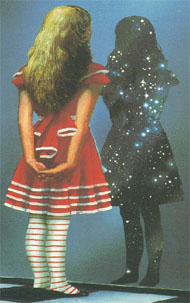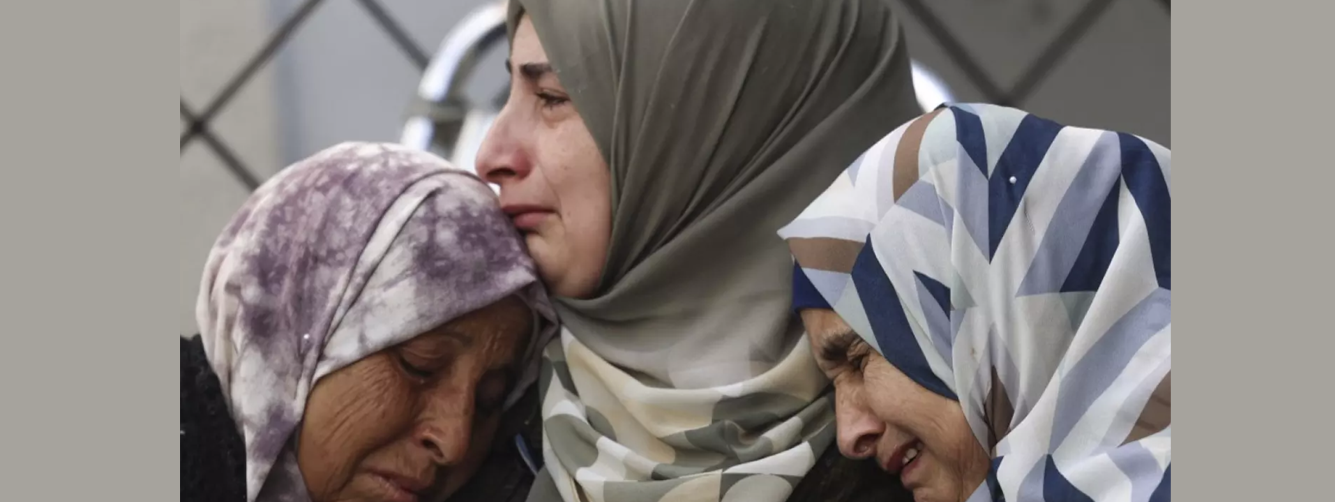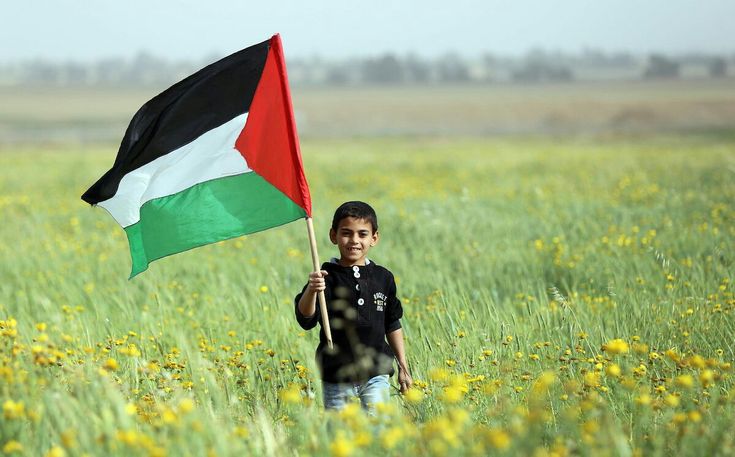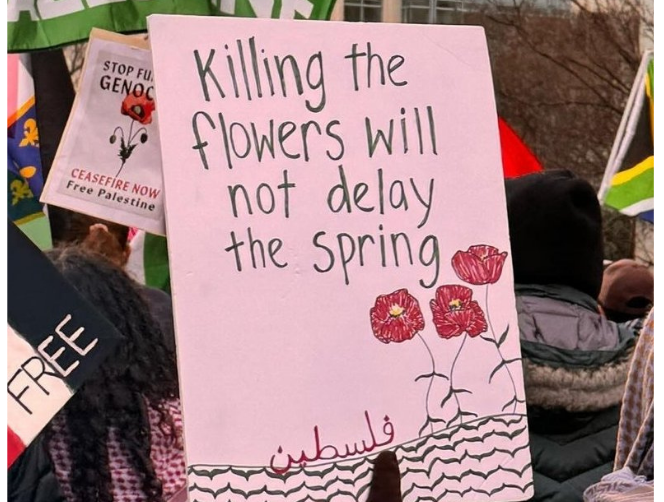
The brooks represent the divisions between squares on the chessboard, and Alice's crossing of them signifies advancing of her piece one square. The situation in Palestine is comparable to this; a designated area of land, divided into different areas and each move made in the game of politics will determine whether you win or lose. The people of Palestine are the unfortunate pawns in their world where everything is distorted and anything but normal.
Talk to any Palestinian or Israeli about the 60 year long conflict that has defined Middle Eastern politics and you will almost certainly get an answer fuelled by anger, passion, bias and loyalty, regardless of which side they are on. The problem with this is that the conflict becomes not only a military and geographical one, but also one of highly-charged emotions on either side. The end result is that the true facts of the conflict blur into obscurity, amongst stories of “all Israelis being murderous and arrogant” and “Palestinians accepting terrorism as a legitimate way of life”.
Of course, any one who visits the country would see this is not the case, and more often than not the view portrayed by the media tends to be one crafted in favor of the Israeli narrative, painting the Palestinians as “moaning, whinging victims of their own misdemeanors”. However, I decided to challenge this distorted view by undertaking an interview with a British tourist who recently visited the conflict-stricken area to establish how the situation comes across through the eyes of someone with no links to the country and with no previous knowledge of the conflict; in other words, going through the looking glass and seeing what’s really on the other side. Toby only stayed here four days, but in that time, his entire understanding and view on Palestine changed.
Just like any other visitor wishing to enter the Occupied Palestinian Territories (Gaza and the West Bank), Toby landed in Israel at Ben Gurion Airport. Little did he know what was awaiting him as he alighted from the aircraft. “As I was walking to the passport control, I was stopped not once, not twice, but three times by whom I assumed were plain-clothed security officers," he recounted to me. "They barked at me, demanding to know why I was visiting Israel, where I was going, where I would be staying and who I would be talking to. This was a surprise to me, especially as I am British and always considered my country to have had good relations with Israel. Frankly, I was given the impression that I simply was not welcome; either they are a country plagued by paranoia or they are just simply very rude. Certainly, from a tourist’s point of view, this is not an experience I would willingly put myself through”.
After leaving the airport, he took a taxi with a Palestinian Jerusalem ID-holder. He explained that as they drove along the well-kept Israeli road to Jerusalem, the taxi driver gestured towards a uniform block of white housing and explained that it was a settlement being extended. “When the taxi driver told me that Palestinian homes had been demolished in order to allow this settlement to be built, I was in disbelief; how could the world stand by and let this happen”. With ease, I told him.
During his visit to the West Bank, in particular to Ramallah, he found people to “be warm, welcoming and very friendly, despite the enormous oppression they are obviously under. My country [the UK] and the world’s media have lied for years about the situation in Palestine and are in turn, helping Israel to suppress the Palestinians.”
You only have to cross one single checkpoint to see how much more socially and economically developed Israel is in comparison to Palestine. In the words of our British visitor, Toby, “Palestine felt like a concrete box, with the walls closing in on you, leading to feelings of suffocation and desperation”. Crossing the Qalandia checkpoint into Ramallah, you can immediately see and feel that you have left Israel; the smooth roads turn into a rough and bumpy ride along pot-holed roads with the smell of waste infiltrating the air. Just as Alice ponders what the world is like on the other side of the mirror, to her surprise, she is able to pass through to experience the alternate world. The same can be said of Israel and Palestine; within seconds you are in another world. Everything is the opposite of what you expect.
So, what about the “terrorism”, which Israel so frequently refers to when justifying its treatment of Palestinians? “I saw no terrorism whatsoever, neither was there any talk of it from the Palestinian people. In fact, perhaps the only terrorism I saw was the way the Palestinian people were being treated, for example, at the Bethlehem checkpoint, where two Palestinian men were forced to stand aside to allow tourists to pass by them. Israel has the military might and the financial backing to be the oppressor”, he said.
It is fair to acknowledge however, that Palestinian society has its failings, as does every society, yet our British visitor went on to say that “if an occupier came to England, appropriated our land, stuck me behind a wall and tried to control my everyday way of life, I’m sure a few frustrated Brits would resort to desperate measures in order to fight back. I don’t condone any forms of killing or terrorism, but now that I have seen what is really going on in this conflict, I better understand the plight of the Palestinians and do not think that those defending themselves against a powerful state should be labelled as terrorists”.
He left Palestine knowing that everything he thought he knew about the Palestinian-Israeli conflict was in fact a distortion, shaped by politics and the media. Recognizing and tackling popular fallacies at the time, when it really matters, is one of the greatest challenges that confront not just politicians but each and every one of us. It is particularly important in foreign policy where we risk assuming that other people in other countries share our own attitudes, assumptions and aspirations; or if we impose our assumptions, values and prejudices on others. There will always be misunderstandings between different peoples and cultures; in relation to Palestine, the key is to overcome these barriers so that peace can be achieved one day.







